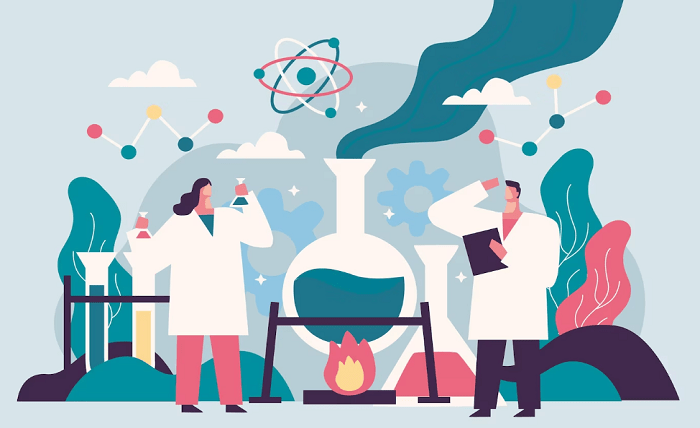In a world driven by human-centric ideologies, biocentrism emerges as a thought-provoking and morally awakening philosophy that challenges the prevailing paradigm. Biocentrism, at its core, emphasizes the intrinsic value of all living beings, highlighting the interconnectedness and interdependence that bind the tapestry of life together. As environmental concerns intensify, understanding the true meaning of biocentrism becomes increasingly crucial, offering insights into a more harmonious and sustainable coexistence between humans and the natural world. The term “biocentrism debunked” likely refers to critiques or arguments against the philosophy of biocentrism.
Foundation of Biocentrism
Biocentrism stands in stark contrast to anthropocentrism, which places human beings at the center of the universe and treats nature as a resource for human use. It also differs from ecocentrism, which focuses on the value of ecosystems as a whole. Biocentrism, on the other hand, acknowledges that all living entities possess inherent worth and should be treated with respect, regardless of their utility to humans. This concept finds its roots in the works of influential figures such as Aldo Leopold, who proposed a “land ethic” that extended moral consideration to the land and its inhabitants.
Core Principles of Biocentrism
Central to biocentrism is the notion that all life forms have intrinsic value, irrespective of their utility to human interests. This stands as a direct challenge to the prevailing anthropocentric mindset that often exploits nature for short-term gains. Biocentrism also rejects hierarchical categorizations of life, recognizing that each species has a unique role in the intricate web of life. This interconnectedness and interdependence are the driving forces behind biocentric thought, emphasizing the need for harmonious coexistence between humans and the environment.
Biocentrism carries ethical implications that extend beyond humans. It prompts us to consider the welfare of non-human species and ecosystems, leading to a shift in our behavior and decision-making processes. The philosophy urges us to rethink our role as stewards of the planet and encourages responsible and sustainable practices that honor the intrinsic value of all life forms.Detailed information is present at techbusinesinsider.com.
Biocentrism in Environmental Ethics
Within the realm of environmental ethics, biocentrism offers a refreshing perspective that challenges the dominant anthropocentric approach. By recognizing the inherent value of all living beings, biocentrism addresses the ethical challenges posed by speciesism—the unjustified favoritism of humans over other species. This challenges us to confront our preconceived notions about superiority and superiority, fostering a sense of humility in the face of the vast biodiversity that surrounds us.
Biocentrism has practical applications as well. It serves as a guiding principle for promoting responsible resource management, habitat conservation, and sustainable development. Policies and practices grounded in biocentric ethics aim to preserve ecosystems for their own sake, acknowledging the complex relationships that sustain life on Earth.
Scientific and Philosophical Support
Biocentrism finds resonance not only within philosophy but also within scientific disciplines. Ecological studies emphasize the intricate connections between species and their environments, aligning with the interconnectedness emphasized by biocentrism. Systems theory, too, underscores the interdependence of elements within a system, mirroring the core principles of this philosophical perspective.
Moreover, biocentrism is not confined to Western philosophy. Eastern philosophies and indigenous worldviews often exhibit deep reverence for all living beings, reflecting a harmonious relationship between humans and nature that resonates with biocentrism.
Biocentrism and the Future
As humanity grapples with pressing environmental challenges, biocentrism offers a way forward. By nurturing an ecological consciousness rooted in the principles of intrinsic value and interconnectedness, biocentrism can inspire a collective shift toward more sustainable lifestyles. This philosophy encourages us to reassess our priorities and align our actions with the well-being of the entire biosphere.
The potential impact of biocentrism goes beyond personal choices—it can inform policy-making, shape industries, and guide international efforts to address global environmental crises. By placing value on all living beings, biocentrism provides a moral compass that directs us toward a more equitable and ecologically balanced world.
Ethical Considerations and Dilemmas
However, embracing biocentrism is not without challenges. Balancing the needs of humans with the intrinsic value of other species can lead to complex ethical dilemmas. Striking the right balance between preservation and development requires careful consideration and adaptation of biocentric principles to real-world scenarios.
Moreover, cultural practices and traditions often clash with biocentric ideals, requiring a delicate negotiation between cultural heritage and ethical responsibility. Additionally, the philosophy raises questions about our dietary choices, treatment of animals, and our responsibility toward the environment.
Beyond Biocentrism: Synthesis with Other Ethical Frameworks
Biocentrism does not exist in isolation; it can be synergized with other ethical frameworks. Deep ecology, which shares biocentrism’s emphasis on interconnectedness, and ecofeminism, which explores the links between the oppression of women and the exploitation of nature, offer complementary perspectives. Integrating biocentric principles into legal and policy frameworks can also lead to tangible changes in how we interact with the environment.
Conclusion
In a world where human actions have far-reaching consequences on the planet, understanding the true meaning of biocentrism offers a beacon of hope. This philosophy challenges us to transcend our human-centric perspective and embrace the interconnectedness of all life forms. As we stand at a crossroads of environmental crisis, biocentrism provides a path toward sustainable coexistence, reminding us that our well-being is intricately linked to the well-being of every living being that shares this Earth.



